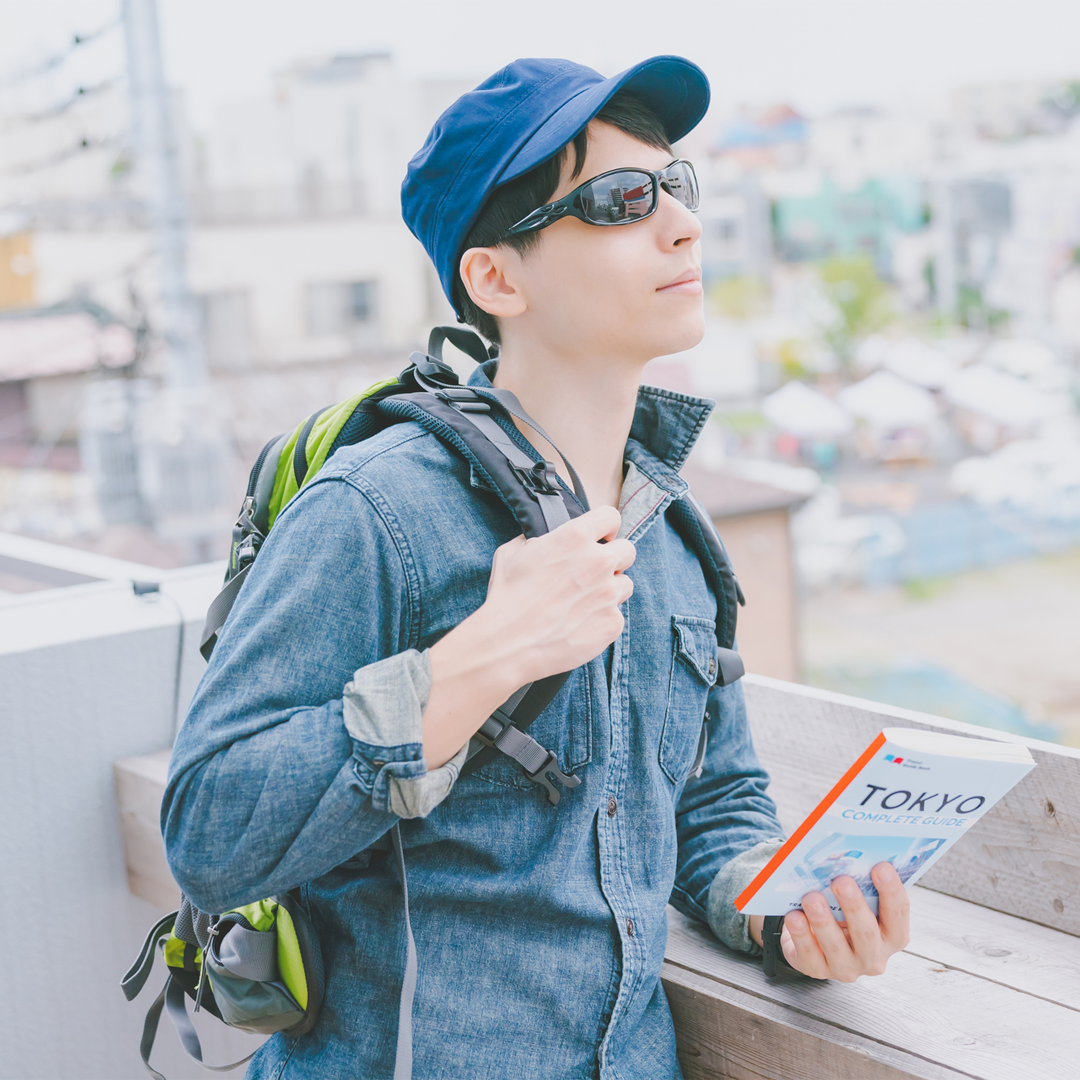- Japan Tips
Working Holidays in Japan – A Guide to Short-Term Jobs
Do you want to experience Japan for longer than a couple of weeks at a time? Do you want to make money while doing so? What if we told you there was a way to do just that, well, there is. Say kon’nichiwa to working holidays in Japan, the best way to immerse yourself in Japanese culture while getting paid.
For someone who revels in independence and adventure, working holidays in Japan are the perfect solution to taking that next bold step in life.
If you’re considering taking up the opportunity of a working holiday in Japan and are looking for more information, you’ve come to the right place. Here’s everything you need to plan a working holiday in Japan, from visas to applying for temp jobs.

What is a Working Holiday in Japan?
A working holiday in Japan or a ‘working holiday visa’ is a special visa for people between the age of 18 and 30 to travel and stay in Japan for up to a year. Working holidays in Japan enable you to work part-time during your stay.
Emphasis on the part-time part, it is made abundantly clear that a working visa should be for experiencing a holiday in Japan and not for the sole purpose of working. You are allowed to engage in part-time or freelance work to support yourself financially while living in Japan.
A working holiday is a less-costly alternative to what can be an elongated and complicated process to essentially reach the same result. You can, of course, find work sponsorships (in advance), or go as part of a university exchange program. But these can be extremely costly and very few and far between.
Unlike a student visa or a standard Japanese visa, a working holiday visa in Japan doesn’t restrict the number of hours you can work or the profession. The only exception to this rule is you’re not allowed to work at “businesses which may impact public morals” such as bars, nightclubs etc.
Am I Eligible?
Here is an exhaustive list of all the countries that are eligible for working holidays in Japan, please also find a link to their retrospective embassy pages for more information.
- Argentina
- Australia
- Austria
- Canada
- Chile
- Czech
- Denmark
- Estonia
- France
- Germany
- Hong Kong
- Hungary
- Iceland
- Ireland
- Lithuania
- Netherlands
- New Zealand
- Norway
- Poland
- Portugal
- Republic of Korea
- Slovakia
- Spain
- Sweden
- Taiwan
- United Kingdom
However, there are often certain restrictions for working visas that will need to be considered. One of the main eligibility requirements is age, please check the other standard requirements below:
- The age restrictions for working holiday visas are between 18 and 30 (35 in some countries) as working holidays are intended for ‘young travellers’
- There is usually a limit on how long you can stay for (this is usually around a year, making them ideal for if you’re taking a gap year before university)
- You are expected to have sufficient funds in your bank account to stay in Japan, usually around 200,000 yen (provide bank statements)
- You are expected to have some level of health or travel insurance during your stay in Japan. This also includes being in ‘good health’ meaning you may be required to submit your health information
- You will need to travel without dependents (essentially meaning no tagalongs), there is an exception to this being a married couple if they both meet the criteria
- You do not have a criminal record
If you meet all these criteria, chances are there should be no reason why you are refused a working holiday visa in Japan. Congratulations!

What Jobs am I able to do during my Working Holiday?
As mentioned above, you are pretty much free to apply for any job that takes your fancy – and to some’s delight, you do NOT need to speak fluent Japanese to get a job.
But that does mean if you don’t speak native-level Japanese certain jobs are easier to come by than others.
- Education – A very popular avenue to go down when looking for a working holiday in Japan is Education, because why not make use of your native language to inspire others? With jobs such as English tutors, teachers, conversation instructors and ALTs there are a wealth of opportunities at your disposal.
- Remote Work – Why not just do the same job, but while working in Japan? If you can’t bear the thought of starting a whole new career path in a foreign country, or your company can’t bear the thought of you taking a break. Embrace the world of remote working, if that’s a viable option of course.
- Hotel & Ski/Resort Jobs – Whether you’re working in a ‘Ryokan’, a traditional Japanese hotel or something a little different in a ski resort, these sort of jobs generally offer accommodation as part of your working visa. Housekeeping, dishwashing, welcoming guests, nothing too strenuous.
- Service & Hospitality – Usually jobs that demand such direct communication with customers would favour those who speak a good portion of the language. However, with a shortage of labour and in tourist-orientated areas this becoming less important, you are most likely to be accepted regardless of your lack of Japanese.
- Farm Work – The ultimate culture test, get up close and personal with animals, food and hard, manual labour. Learn about the origin and quality of food (which is of great importance to many Japanese). Working 5-6 days per week with 7-9 hour shifts, but with accommodation usually included sometimes with home cooked meals, farm work is by no means something to grumble about.
- Production – Do you light up when in front of a camera? A career in production may be for you, modelling, performing, acting, you name it. With entertainment agencies eager to employ the “next big thing” it’s got to be worth a shot, right?
Even though it’s entirely possible to find a job without Japanese speaking skills, it’s much easier to do so if you’re able to speak at least basic Japanese. It may be beneficial to start learning Japanese before your travel, in preparation, or at the very least while you’re on your working holiday.
How do I get a Working Holiday Visa for Japan?
Now you know the basics of working holidays and whether you’re eligible for a working holiday visa in Japan – how do you get one? Fortunately, the process for working holiday visas is much simpler than other types of visas.
There are two ways to get started on your journey, consult an agency such as ourselves who will assist you throughout the whole process of working in Japan, or, head to your nearest consulate (usually a Japanese embassy) with all the necessary documentation.
You will need to provide the following:
- Passport
- CV (preferably English and Japanese)
- Passport photo
- A filled-in application form, which can be found on the Japanese embassy’s website
- “Written Reason for Applying”, pour your heart onto an A4 page about why you want to travel to Japan
- An itinerary, or “Outline of Intended Activities”, what you plan to do essentially
- The last three months bank statements to prove you have the necessary funds
- Return ticket (this isn’t essential, but can reduce the funds you need to prove)
How to Get your Application Accepted
As previously mentioned, working holiday visas are often a much simpler process than other visas, but that doesn’t mean the application is ‘easy’.
To ensure your application gets the stamp of approval you know you truly deserve, you’ll need to consider three main areas; money, itinerary and time of year.
Funds
Countries that provide working holiday visas are a true testament to the phrase ‘seeing the colour of someone’s money”. Unfortunately, that’s just how it is sometimes, meaning you have to provide bank statements to prove you have the necessary funds to support yourself.
Having a comfortable financial position will only serve you well in your application process. A mass of credit cards, loans, or borrowed money will not suffice – you need to prove a clean financial history for the last three months.
If you’re wondering how to cut costs, check out this guide for budget travel.
Time Of Year
This may not be something you have considered, but the time of year that you apply can make or break your chances of jetting off to Japan. The visa application process coincidentally lines up with the financial year of April – March and as such it may be a smart decision to get in early, say May onwards.
Depending on your country, there may be a limit as to how many people are allowed to have working visas – meaning leaving your application to the latter end of the financial year could result in the quota already being filled.
Itinerary
This is an art form all itself, writing an itinerary that serves the purpose you need it to. Your intended activities need to balance the fine line between “I know what I’m talking about, I’ve done my research” and not detailing absolutely EVERYTHING.
There are certain things you should mention, and certain things you definitely should not. If you already have a job lined up in Japan, fantastic, but keep it to yourself. The whole reason behind a holiday working visa is for travel, spending money, doing tourist-esque things – a job should only be a secondary factor of this.
It should show you’ve spent a decent amount of time looking into things you intend to do, without screaming and shouting about it. Like sure, mention that you intend on visiting the Kagawa Prefecture or one of the Japanese castles, Hikone Castle and a couple of things you’d like to try, but you don’t really need to go into that much detail.
Also, don’t worry about a government agent following you around waiting for you to trip up. Your itinerary is meant to act as a rough guideline, a fun-to-do rather than being set in stone. So it’s okay to mention something that you’d like to do but might not end up following through with.
If you can ace these three areas there’s no reason as to why you won’t be accepted for a working holiday visa in Japan.

What’s Life Like on a Working Holiday in Japan?
Now you’ve got the hard bit out the way, you can look forward to what life is like in Japan – more specifically where you’ll be staying and additionally what you should consider during your stay.
Accommodation
When it comes to the accommodation during your working holiday in Japan you are by no means short of options. From apartments to shared accommodation and even farming, with the proper forethought, you’ll have no problem finding a place to lay your head.
Here are just a few examples of viable options for working holiday goers like yourself:
- Leopalace – Small, accessible apartments that come in two kinds of layouts, with, and without a loft. They make a perfect option for those on working holidays due to not needing a guarantor, no intermediary fees, and comes fully furnished. What’s not to like?
- Sakura House – A guesthouse provider whose aim is to create a communal space that acts as your “home away from home”. As well as being a lovely little phrase, their apartments offer great versatility in offering single rooms, private rooms, dorm rooms and traditional hotel rooms.
- Gaijin House – Meaning “foreigner house” is a perfect alternative to a traditional apartment in Japan. Avoiding the expense and hassle of renting, gaijin houses offer either weekly or monthly contracts while offering the ultimate Japanese experience – shopping at Japanese convenience stores for food, cooking, cleaning etc.
Registration
When you set foot in Japan you will be issued a ‘Residence Card’ as part of your stay. This only applies to medium to long-term residents, so if you are simply travelling you don’t need to worry about this.
You are then given 14 days to register as a resident, in which you will need to take your ‘Residence Card’ you were issued at the port of entry and submit a “moving in notice” to the municipality where you live.
You will then be eligible for a range of government benefits such as National Health Insurance. There are also other services such as Social Insurance which is usually paid by your employer, but only if you work full time. Since you won’t be working full time this means you will have to pay it yourself, but don’t worry it’s pretty cheap!
It’s also worth mentioning that if you change your address at any point during your working holiday, you will need to revisit the municipality where you live and submit a “notification of moving out”.
Working in Japan
Finding a job and working in Japan as you’d expect is quite different from the United Kingdom. Working in Japan essentially boils down to three distinct areas; your resume, how you dress and your interview.
We have identified the key areas/skills that will help you stand out from the crowd when it comes to writing your CV. It’s certainly easy to waffle when putting together a CV but it’s important you include the following skillsets: potential, stance, portable skills, literacy and technical skills. It’s also worth considering that you will need to provide your resume in both English and Japanese for the best chance of getting seen.
The dress code is slightly different from what you’d expect to see in the UK. From what may be a slightly relaxed dress code at home, it’s important to sharpen your look for when travelling to Japan. As a man, you will need a dark-coloured business suit where the shoes match the belt. And for women, pretty much the same – just make sure it’s not too ‘revealing’.
Interviewers in Japan look at much more than just your answers to their questions. They’re looking for posture, how you enter a room, tone, volume, basically how you present yourself.
If you’re working with an agency such as ourselves, we can help you look your best in all three quadrants to ensure your best chances of passing a Japanese interview.
Other Things to Consider
It may seem slightly trivial looking at the bigger picture and it may be just something you’ll ‘deal with when the time comes’ but it’s also important to consider the day-to-day aspect of your travels.
From importing medication to Japan and sorting your phone service out, to what it’s like being veggie in Japan, do your homework so you’re not left scratching your head trying to figure these things out in a foreign country.
Can I Stay in Japan after my Working Holiday Visa Ends?
While the whole premise behind a working holiday visa is for a temporary stay, it is indeed possible to stay for longer given the right conditions. If you’re say, seven months into your working holiday in Japan and decide this life is for me, then there are some steps you can take in making that a reality.
First of all contact your current employer, if they’re impressed by your work ethic and performance over the course of your employment they may be willing to sponsor you. Whether you’re sponsored by your current company or find a new full time position, you may be lucky enough to find your company helps you with the paperwork.
You will need to apply for a working holiday henkō (amendment), a procedure fairly similar to sponsoring a new employee without a visa. You will need to provide a handful of documents as evidence, such as the application form, your new employment contract and any relevant educational certificates.
Interested in living and working in Japan? Check out ALT jobs with Interac here.
About the Author

Brian McDonough is a consultant at Interac, Japan’s largest provider of ALTs (Assistant Language Teachers). Originally from the US, Brian has lived in Japan for over 25 years, giving him a unique perspective on the cultural differences and challenges people face when moving to Japan. He has first-hand experience of working in Japan as an American.





